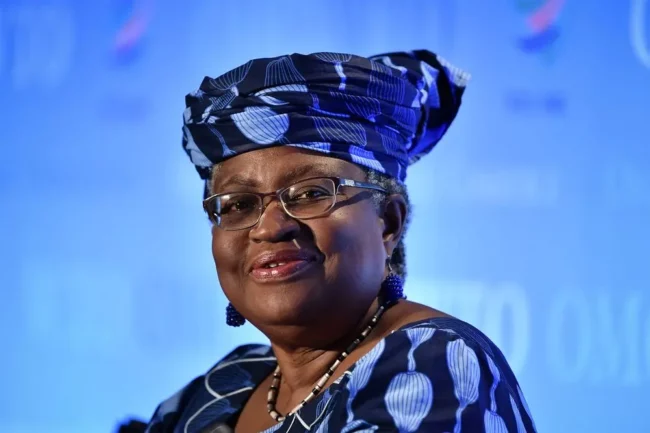World Trade Organisation Director-General Ngozi Okonjo-Iweala has called for a comprehensive overhaul of Nigeria’s border management system, highlighting the country’s unusually high number of agencies at entry points and an inefficient 90% physical inspection rate as major impediments to trade facilitation.
Speaking virtually at the 2024 Controller General of Customs Conference in Abuja, Okonjo-Iweala emphasized that Nigeria’s current border management structure trails behind global standards, hampering the country’s trade potential and revenue generation capabilities.
The conference, themed “Nigeria Customs Service: Engaging Traditional and New Partners with Purpose,” provided a platform for the WTO DG to outline critical reforms needed to modernize Nigeria’s customs operations and align them with international best practices.
Drawing from her experience as Nigeria’s former finance minister and coordinating minister of the economy, Okonjo-Iweala noted that the challenge of multiple agencies at the borders has persisted despite previous reform attempts. Recent WTO data indicates the situation has shown little improvement, suggesting a need for more decisive action.
In a striking comparison with developed economies, Okonjo-Iweala revealed that while advanced nations typically inspect less than 1% of incoming consignments physically, Nigeria maintains an extraordinary 90% physical inspection rate, with an additional 9% of goods undergoing scanning procedures. This extensive inspection regime, she argued, creates unnecessary delays and increases the cost of doing business.
Okonjo-Iweala, who is positioned for a second term at the helm of the global trade body, outlined three key reform measures to enhance predictability in Nigeria’s customs operations. First, she advocated for the full implementation of the ECOWAS Common External Tariff through the elimination of the Import Adjustment Tax (IAT). Second, she called for restrictions on tariff concessions under schemes like the Import Duty Exemption Certificate, emphasizing the need for greater transparency in their application. Finally, she recommended removing most products from the import prohibition list, noting that these items often receive discretionary waivers and account for approximately 6-7% of Nigeria’s imports.
An important aspect of the proposed reforms centers on risk management improvements. Okonjo-Iweala stressed that effective risk management must be accompanied by enhanced compliance from businesses, better targeting and feedback systems from inspections, and reduced discretionary powers for individual officials. This approach, she argued, would ensure more consistent and predictable application of customs rules and regulations.
Okonjo-Iweala emphasized that streamlining border operations would require better coordination and delegation among existing agencies. She noted that the current multiplicity of agencies not only complicates trade processes but also creates opportunities for inefficiencies and corruption.
To achieve meaningful reform, Okonjo-Iweala highlighted the importance of convincing customs officers to embrace necessary changes. She suggested that faster clearance times, improved information sharing among agencies, and enhanced risk management systems would reduce delays and improve overall efficiency.
The proposed reforms align with global best practices and could transform Nigeria’s trade landscape. By reducing physical inspection rates and streamlining border agencies, the country could reduce clearance times, lower trade costs, and boost revenue collection through more efficient processes.
Experts note that implementing these reforms could position Nigeria more favorably in the African Continental Free Trade Area (AfCFTA), where efficient customs operations are crucial for competitiveness. The reforms could also help Nigeria better leverage its position as Africa’s largest economy by facilitating smoother trade flows.
MarketingInAfrica’s Take
Okonjo-Iweala’s recommendations come at a critical time for Nigeria’s trade sector. Our analysis suggests that implementing these reforms could yield significant economic benefits:
The reduction in physical inspections alone could save businesses millions in demurrage charges and storage fees annually. Conservative estimates indicate that streamlining border agencies could reduce clearance times by up to 60%, saving the economy billions of naira in logistics costs.
However, successful implementation will require strong political will and a change management approach. The resistance to reform, particularly from agencies that might lose their border presence, could pose major challenges. Nevertheless, the benefits to trade facilitation and revenue generation make these reforms essential for Nigeria’s economic growth and international trade competitiveness.
For the Nigerian business community, particularly importers and exporters, these reforms represent a game-changer that could drastically reduce the cost and time of international trade operations. The success of these reforms could mark a new era in Nigeria’s trade facilitation journey and set a precedent for other African nations grappling with similar challenges.

Leave a Reply